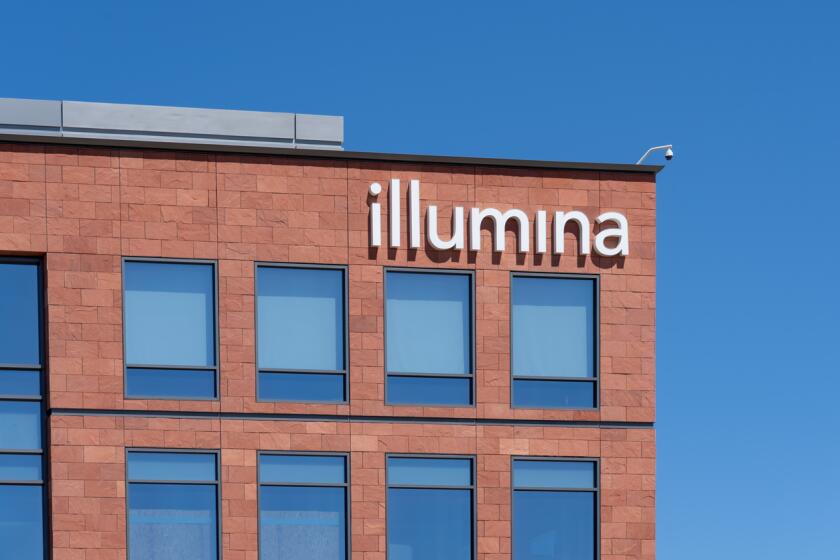Qualcomm’s patent fees under fire in South Korea
Qualcomm’s technology licensing practices have come under fire from another anti-monopoly regulator in Asia – this time in South Korea.
The San Diego wireless chip maker said Tuesday that it has received a staff report from the Korea Fair Trade Commission alleging that the company’s patent licensing practices violate competition laws.
The news, released after markets closed Tuesday, sent the company shares tumbling Wednesday. Qualcomm shares fell 9.4 percent to $48 , their lowest close since October 2011. The stock has declined 35 percent this year.
Specifically, the commission staff objects to Qualcomm’s practice of licensing its patents at the device level and requiring its chip customers to sign license agreements. The commission staff wants changes in how Qualcomm licenses its patents in Korea and proposes a fine.
The staff report now will go before the full commission, which can accept or reject all or parts of it. The commission would then make a ruling on remedies.
Earlier this year, Qualcomm settled a 13-month anti-monopoly probe in China, agreeing to pay a $975 million fine and reduce its licensing royalty rate on devices sold within China’s borders.
In 2009, the Korea Fair Trade Commission fined Qualcomm $208 million over its licensing practices for 3G technologies. The company paid the fine but appealed in court. The case is now pending before the Korea Supreme Court.
In a statement, Qualcomm said it disagrees with the staff’s findings and will fight the allegations.
“Our patent licensing practices, which we and other patent owners have maintained for almost two decades …. are lawful and pro-competitive,” the company said. “Device level licensing is the worldwide industry norm, and Korean companies have long enjoyed the benefits and protections of access to our patents, which cover essentially the entire device.”
Stacy Rasgon, an analyst with Bernstein Research, said in a research note that Qualcomm previously revealed an investigation but didn’t outline the specific issues until now.
“The allegations in the report are troubling and specifically call out Qualcomm’s practice of charging device-level royalties as violating Korean competition law,” said Rasgon.
Qualcomm charges royalties based on the wholesale price of the smartphone or other device using its technology. Critics of patent licensing want to base royalty payments on the price of chips or other components inside smartphones, which cost much less.
Get U-T Business in your inbox on Mondays
Get ready for your week with the week’s top business stories from San Diego and California, in your inbox Monday mornings.
You may occasionally receive promotional content from the San Diego Union-Tribune.










